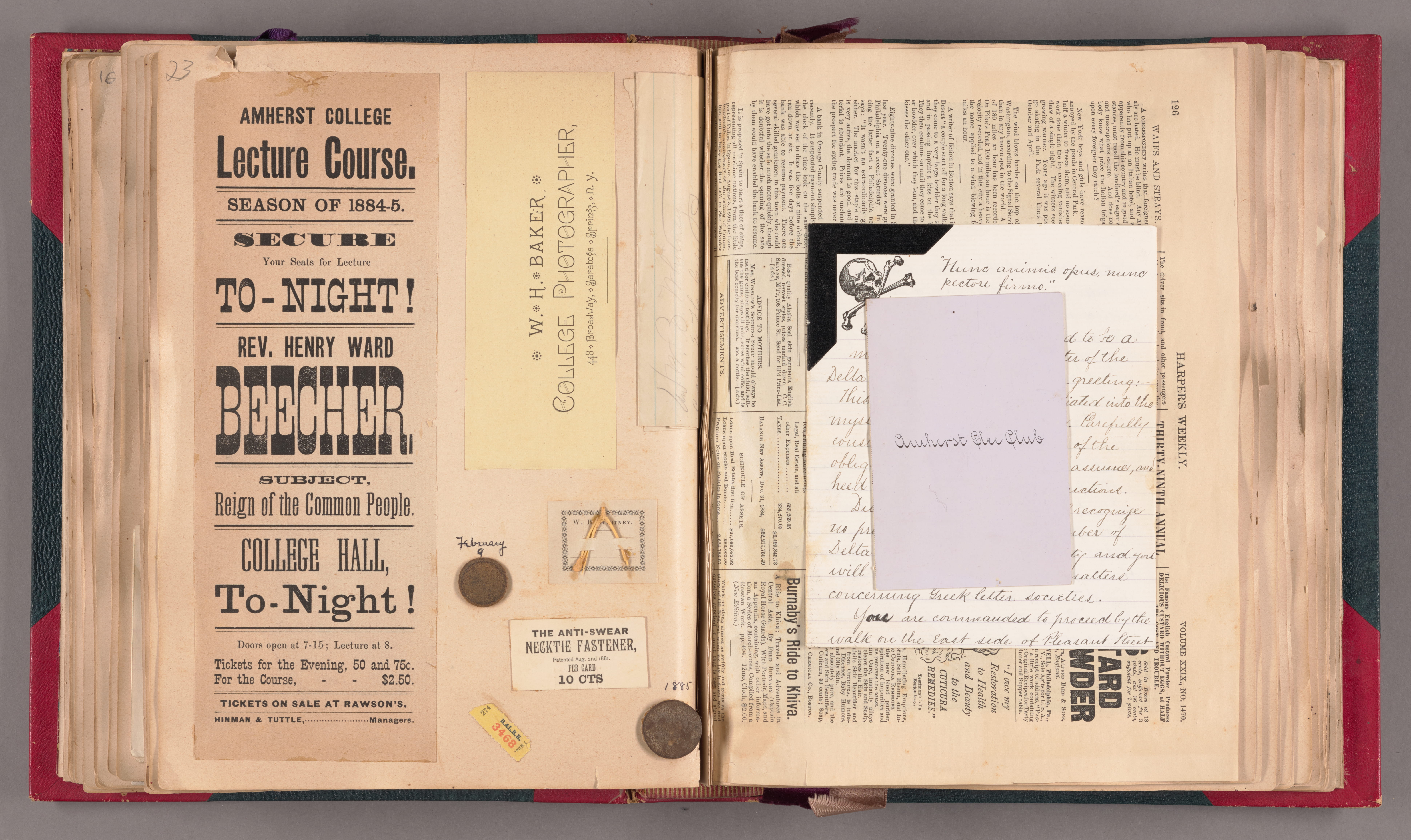Our very first digitized scrapbook is now available! Thanks to William Belcher Whitney (1887).
It is January of 2020, and this marks the ending of the more than three year Bicentennial digitization project in the library to add college history materials to our digital collection. Though we will continue to add new collections throughout the year as the college begins to start campus celebrations of the Bicentennial, this feels like a moment of transition for our work in the library on this project. We are almost finished with a big project!
We’ve digitized a wide and deep range of materials pertaining to the history of Amherst College – the people, the place, the times that were. At our final monthly planning meeting where we review the status of our digitization processes, we found ourselves casually discussing some obscure information about a college well that used to exist near Johnson Chapel.
It was a moment for a pause, and for acknowledgement of where we have arrived since we started the project three years ago. All of us involved in the digitization efforts for the Bicentennial have gained a much deeper and broader understanding on the history of this place where we all work.
Look back on time with kindly eyes – He doubtless did his best
I’ve been reading the book Emily Dickinson’s Home by Millicent Todd Bingham, from the suggestion of a colleague as a good book to start to learn more about another digital collection we are stewarding. One of Dickinson’s poems available in our digital collections inspired the title of this post.

As I encounter the 19th century dialogue between siblings in the many letters sent between sisters Emily, Lavinia and their brother Austin, I marvel at hearing mention of different parts of the Amherst campus, or news of the railroad coming to Amherst, or terrible dreary winter weather that seems quite familiar.
Footnotes in the book’s text reference various Amherst College publications and I spark with the acknowledgement that I’ve had many project planning meetings about putting these collections online!
One of the goals of digitizing archives and special collections materials is to increase access, which in turn makes space for more engagement with the materials, and more engagement with history and place. I do this work of digitization mostly thinking about others – what the researcher will need, what will draw student interest, how alumni will engage with the materials. Today, I’m reflecting on how I myself am engaging with these digital collections, and how it has deepened my connection to the college, to the town, and to the many minds who have called this place home, even if only for a little while.


The Bicentennial project in the library is becoming part of the history of this place, or at least of the library, as we wind down our work on the digitization projects we planned. Documentation is filed away. Collections are being added to our digital collections platform. We even had a small party at one of our meetings to celebrate the accomplishments of library staff.
I am looking back kindly on the time we spent working on the Bicentennial projects. There were hard days, there were challenges, and yet here, on the other side of the work, I’m feeling grateful for good colleagues, a supportive institution, and a connection to this place and its movement through time.
I think the Amherst hand book from 1896-97 captures how I’m feeling when suggesting ‘where to go’ to students newly arrived on campus:
“You are in the midst of a beautiful and historic region. Study its history and visit the places of interest for it will pay you.”
Este Pope is the Head of Digital Programs in the Amherst College Library. She can be contacted at epope at amherst.edu.

